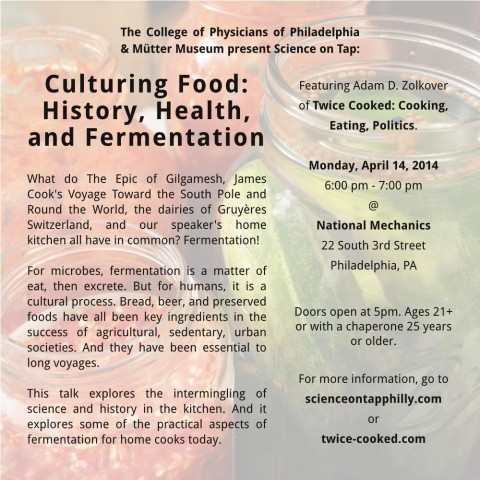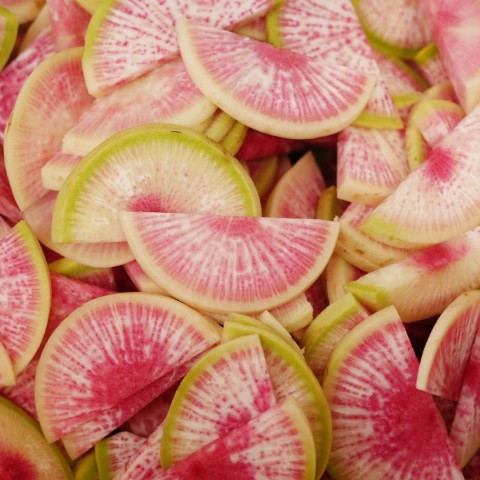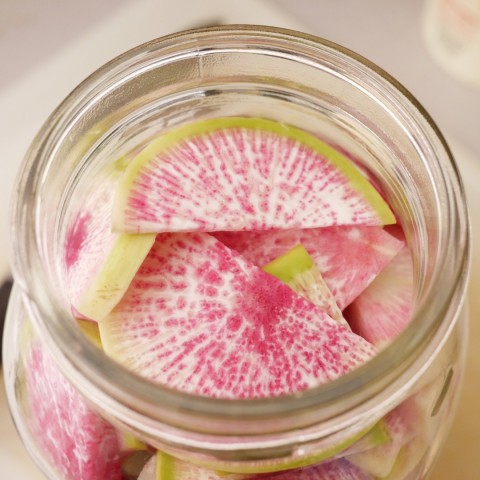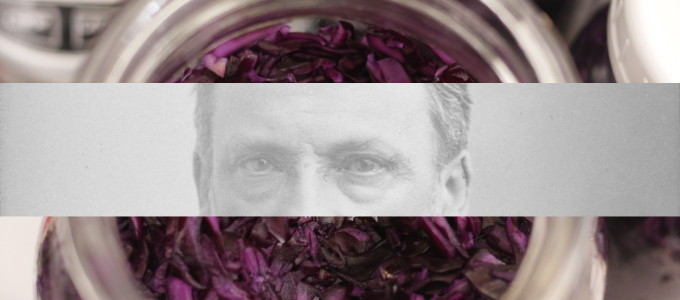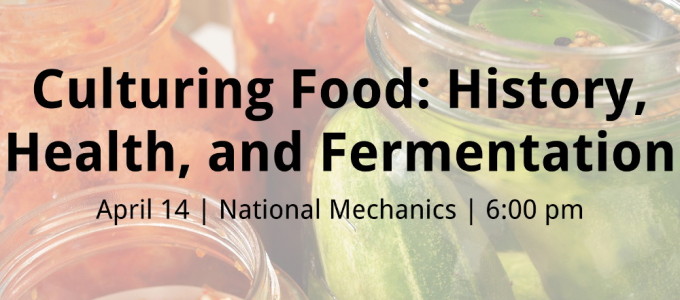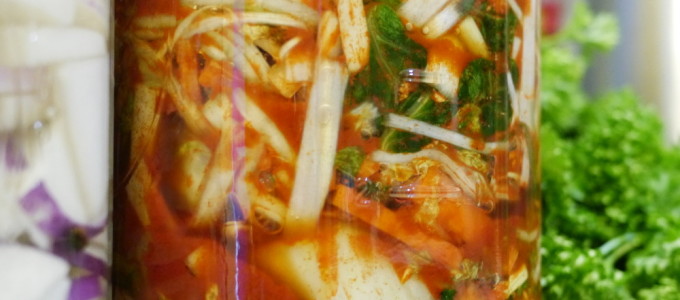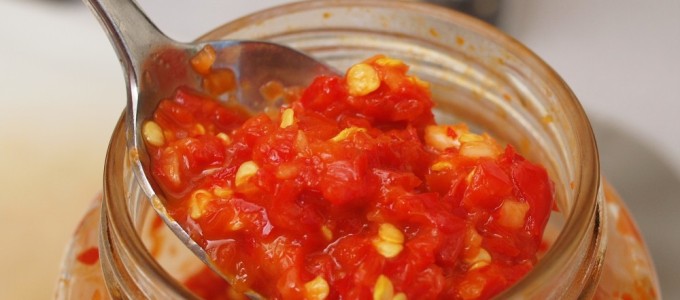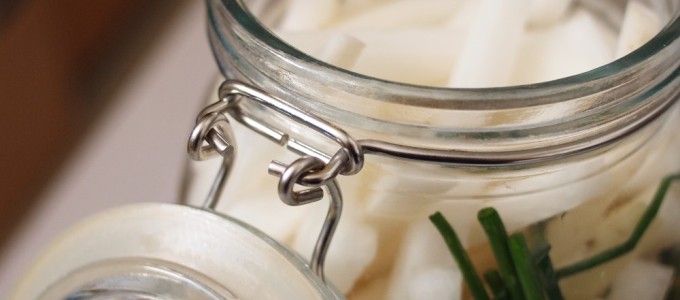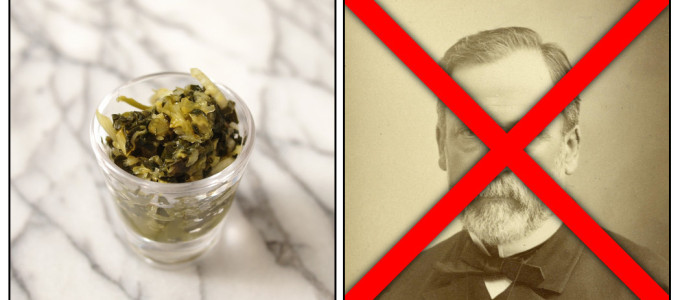Kind of, sort of, you may consider this a follow-up to my previous post about the rhetoric and logic of why people ferment. Two of the folks who I’ve interviewed for this project — one a very old friend, and one a fairly recent one — both had some very interesting observations about why they make pickles, and why other people do too. To a certain degree, they engage with some of the reasons bloggers lay out for pickling — fermentation as tradition, environmental consciousness, health, etc. — but when I said before that those rhetorical moves are far from comprehensive — well — I think you’ll see what I mean. Just read.
pickles
On the Rhetoric of Lacto-Fermentation Online
If you’re wondering where I’ve been (dear readers!), the answer is otherwise occupied. The past two weeks have been overflowing with grading, and more grading, and a plethora of projects that spread their tendrils like a delicate blue-cheese penicillium into every crack and crevice of my free time. At least one of those projects is food related, however, and based on some research I’ve done for it, here is one observation.
There are a few standard rhetorical moves that food bloggers — including myself — make when introducing lacto-fermentation to their audience:
- The broad call to history and tradition: “This is a technique as old as time itself, that has sustained humanity through its harshest winters when it would otherwise have starved. I want you to feel — FEEL — that connection, people.”
- The call to family history: “This is a wholesome food, and I know it’s wholesome because it’s something that my great grandmother would have eaten with relish.”
- The call to ethnic heritage: “My family is from Lithuania, so when I think of sauerkraut, I think of old men in suspenders, up to their elbows in cabbage, smoking cigars on the porch on Sunday afternoon.”
- The health claim: “I’m no doctor, I’ll admit, but after eating these peachy fermented green beans for a month, the knot in my back unclenched and my singing voice improved!”
- The moral claim: “By doing this, we’re saving the environment and sparing our children from a gut bereft of beneficial bacteria. Won’t somebody please think of the children?”
- The foodie claim: “Michael Pollan
/ Sandor Katz
/ Sally Fallon
/ whoever else all but demand that we ferment!”
- The disclaimer: “I know that this sauerkraut looks funky. But it tastes fun-KAY!” Or: “I swear guys, lacto-fermentation won’t kill you.”
The thing about all of these moves is that while they have their place and while, in a limited way, they describe some of the reasons we ferment, they are not comprehensive. It turns out that folks practice lacto-fermentation for all kinds of reasons. And while health, morality, or tradition may play some role, practical concerns — like the question of what to do when your neighbor gives you a bale of kale — are at least as important. It seems only right that deliciousness and the thrifty thrill of a homemade salty snack often win the day over loftier ideals.
There’s no particular judgment here. Like I said, I have engaged in many of these rhetorical moves, and I stand by the idea (for example) that lacto-fermentation is worth doing because it connects us to our common humanity. But I can’t eat common humanity, whereas I’ve got a great big inviting jar of pickled turnips waiting right over there.
Science on Tap – Culturing Food: History, Health, and Fermentation
Don’t forget, folks — this is happening on Monday, April 14, at 6PM. My talk at Science on Tap. If you’re in Philly, and if you’re around, come on out to the National Mechanics bar on South 3rd St. to hear me talk about fermentation as a science and a technology. There will be pickles! There will be bread! There’s going to be a healthy dose of The Epic of Gilgamesh, and even a little bit of the Bible thrown in for good measure!
(I can talk about the Bible in a science lecture, right? That won’t get me thrown off the stage?)
Anyway: the talk is free. The bar is great. You’ll need to pay for your food and drinks, but National Mechanics does all that stuff super well.
If you come by, say hello. I’d love to meet you.
Watermelon Radishes: In All the Colors of the Rainbow
For all their stunning beauty, watermelon radishes emit a pungent, offensive odor as they ferment. It’s the sort of smell that might make you turn around and ask yourself: is it possible that I’ve stepped in something?
But mature, they are pink, and pleasant, and piquant. And flavored with garlic, hot peppers, and star anise, I have no doubt that they will be an excellent addition to the edible menagerie of living foods that are slowly taking over the fridge.
The recipe is as follows:
About 8 Watermelon Radishes (sliced thinly into semicircles)
1 1/2 quarts Brine (filtered water, plus 3 tbsp of Sea Salt)
2 Cloves of Garlic
1 Star Anise Pod
Dried Hot Peppers and Black Peppercorns to taste
To put it all together, have a look over at this post about Lactofermented radishes from a couple of years ago.
And enjoy!
Spring Workshop: Pickling Without Pasteur, Part II
People! Philadelphia People, especially! Pay attention!
I am pleased to announce that, because it was such a hoot in the fall, I will be rerunning my pickling workshop — Pickling Without Pasteur — this spring. Thanks to the Mount Airy Learning Tree, on Saturday May 3rd from 10am to noon, we will be gathering in the Unitarian Society of Germantown’s kitchen to talk about the biology and methodology of lacto-pickling, and then to make copious quantities of delicious pickles which participants will get to take home in jars.
Coming Soon to Philadelphia’s Science on Tap
I am pleased to announce that — thanks to the generous patronage of The College of Physicians of Philadelphia and Mütter Museum, and thanks to my thoughtful friend Anna — I will be the featured speaker on April 14 at Philadelphia’s Science on Tap.
If you don’t know, Science on Tap is a monthly gathering at Philly’s National Mechanics bar and restaurant in which folks wander in to drink good beer, eat good food, and listen to an informal presentation by a scientist or other expert followed by lively conversation. The goal, say the Science on Tap folks, is to promote enthusiasm for science in a fun, spirited, and accessible way, in the sort of venue where people are at their most relaxed.
The Twice Cooked Lacto-Pickling Index
I had thought when my lactofermentation workshop was over that I would be done with the pickling posts for a while. I had thought that I might take a break, work on some other recipes, and give those of you out there who are neither attached to soured foods nor fascinated by edible bacterial processes a turn with some entrees, or desserts, or even some fresh, unfermented vegetable snacks.
But then I got to doing some pickling last weekend. You know — just for me. And I happened to have my camera on hand. You know — like you do. And I happened to take what turned out to be some very pretty pictures of cabbages, and turnips, and attractive jars filled with delicious, fermenting things. And then —
Fermented Red Hot Pepper Sauce
I have to admit: I have an ulterior motive in making this particular post at this particular moment. Red hot pepper sauce is yet another pickle — one last ferment in what, one month ago, I called a systematic exploration of the nutritionally rich, biologically diverse, sometimes slightly stinky genre of fermented foods.
I said then that the series was part of the run-up to my pickling workshop. And my pickling workshop, dear readers, is this Saturday, September 28.
Herby Lactofermented Daikons
In the run-up to my pickling workshop, next month, it seems only appropriate that I should do a series of posts about some particularly tasty examples of that nutritionally rich, biologically diverse, sometimes slightly stinky genre of fermented foods. For the past year or so, I’ve scattered lacto-pickles here and there across the blog, with posts about fermented greens, full sours, krauts, and the like. But there’s nothing in my intermittent exploration that has been anything resembling systematic. And if we few, elite culinary pedagogues know anything at all, it’s that without systematicity — without the sort of enforced rigor that drains the brine of joy and fun out of the enterprise entirely — it can hardly be called an education at all.
I kid.
Fall Workshop: Pickling Without Pasteur
People in Philadelphia! People who might have occasion to visit Philadelphia! You should all come out to this:
Saturday, September 28th, from 10 am to noon, I’ll be teaching a workshop on lacto-pickling and lacto-fermented vegetables, through the Mount Airy Learning Tree, at the Unitarian Society of Germantown on Lincoln Drive in Philadelphia. Participants will get a short presentation on the microbiology of fermentation. And then we’ll get our hands into the brine, and the shredded vegetables, and all the tasty spices, such that you’ll come away (dear readers!) not just with new knowledge and rich experience, but with one to two quarts of tasty living souvenir.
